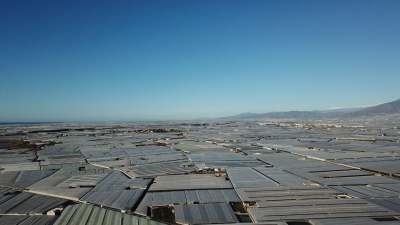What’s behind the shortages?
Since mid-February 2023 supermarkets including Aldi, Asda, Lidl, Morrisons and Tesco have been rationing certain fruit and vegetables. Different supermarkets are rationing different types of fresh produce, from cucumbers to tomatoes.
The UK government blames “poor weather in Spain and North Africa which has impacted production for imported vegetables which are currently out of season in the UK.”
The Department for Environment, Food & Rural Affairs (DEFRA) says that suppliers have told them that the reason for shortages is “predominantly caused by poor weather in Spain and North Africa where they are produced.”
However, some commentators and suppliers are pointing the finger at Brexit, and highlighting how other European countries who receive exports from the regions aren’t experiencing shortages.
The Spanish Federation of Fruit, Vegetables, Flowers and Plants (FEPEX) says “There are no problems with exports to other EU countries”.
Other factors connected to Brexit that could contribute to the shortages include the drop in seasonal migrant workers in the UK’s agricultural sector post-Brexit, increased sourcing of Moroccan over Spanish produce, and even exporters simply choosing not to work with the UK anymore.
Shortages highlight UK’s dependence on migrant labour
However much bad weather and Brexit are to blame, these shortages have made it clear that UK supermarket shelves are reliant upon workers in southern Spain and Morocco.
Greenhouses cover swathes of land across Spain’s southern coast, where produce such as tomatoes, berries, and peppers are grown in their millions and exported to the UK and European countries.
The UK imports more fruit and vegetables from Spain than from any other country, and most of this ends up on supermarket shelves.
Almeria and Huelva, key Spanish exporting regions, are dependent on migrant labour. The workers labouring in these greenhouses are from all over the world.
Most workers in Almeria are migrants, with around 30% of these undocumented. There are estimated to be around 100,000 migrant workers in Almeria harvesting fruit and vegetables, often on seasonal and short-term contracts.
Over 12,000 people are recruited directly from Morocco to Huelva each year to work in the harvests, and women with children are the primary target demographic because they’re most likely to return to Morocco after their contract ends.





